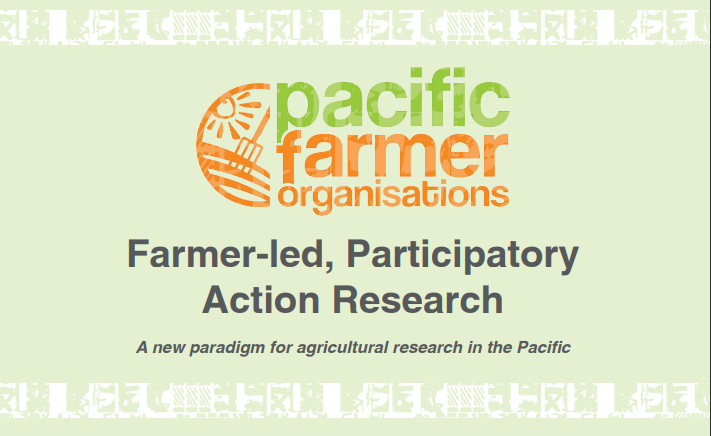Farmer Led Research Background Paper
Farmer-led, participatory action research is an approach that places farmers at the center of an innovation process. It ensures the integration and collaboration of all stakeholders throughout the research cycle, with a special emphasis on encouraging the active and effective leadership of farmers.
Farmer-led participatory action research values the knowledge of all stakeholders, building and strengthening the capacity of all participants, thereby maximizing the impact generated by the research. The research community, development partners and farmer organisations collaborate in the analysis/diagnosis of the baseline situation, agenda setting and programming, identification of solutions, development, implementation and extension, monitoring and evaluation.
Farmer-led participatory action research puts a strong emphasis on continuous collaboration throughout the research, ensuring the mutual sharing and exchange of the parties involved – especially that of the research community and farmer organisations; and recognizing the important role of both these parties, , looks for complementarity between traditional knowledge and technical research for the benefit of improving the livelihoods of smallholder farmers.
Farmer-led participatory action research acknowledges the benefit of the participation of farmer organisations in the governance of research, in the establishment of long term partnerships and in the co-construction of traditional or innovative solutions, with an emphasis on local context and needs. In farmer-centered agricultural research partnerships:
1. Farmers’ knowledge and experience are valued.
2. Farmers actively participate in decision-making and research activities, including data collection.
3. Knowledge exchange between farmers and researchers is encouraged. 4. Sustainable practices are promoted.
5. Farmers benefit from research outcomes.
6. Policies are evidence-based and inclusive.
7. Long-term commitment and scaling up are emphasized.
Farmer-led research can improve rural livelihoods. Impact assessments indicate enhanced food and nutrition security through increased crop diversity and improved production. Farmer-led research often led to higher yields and household incomes compared to previous farming techniques, and allowed farmers to accumulate savings and to invest in assets. Most of the research involved the reduced use of chemical inputs and had a positive environmental impact (Bayer et al. 2015)

